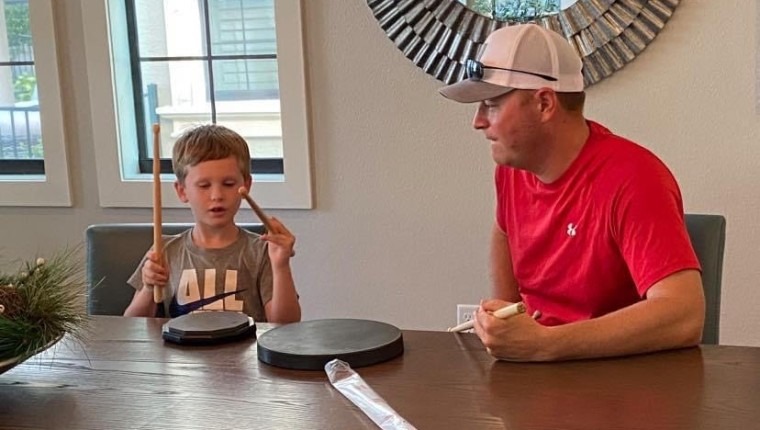I was fortunate to have a few really great English teachers during high school. I still recall many of the lessons on building well-constructed sentences and how that led to well-constructed paragraphs, and then pages, and then essays and papers. While it wasn’t always my favorite class, I did really enjoy learning about that structure and thought-process of composition.
In my career as a drumming instructor and composer of percussion music for pipe bands, I have drawn many comparisons between learning and communicating the English language and doing the same for drumming. Composition is a skill that needs to be fostered and developed: both in the English language and with music. I’ve often used the comparison that just because someone has the ability to read and comprehend a Best-Selling novel, does not equate to their ability to write and publish a Best-selling novel of their own. The skill to write and communicate needs to be cultivated and developed. Many times, you learn the most by learning from your mistakes.
In pipe band drumming, those mistakes would include things like composing the score to be too technically challenging for the players to recreate the intended musical effect, or trying to make a score overly complicated so that the listener isn’t able to comprehend the attempted musical purpose. Most times, the answer is to keep things simple and direct. However, there’s a fine line to draw, because you don’t want the score to be so simple that it lacks musical and rhythmic interest.
When teaching drumming students, I typically focus on trying to approach building scores the same way that you would teach someone to learn to read in English. We start with basic technique and rudiments, comparable to letters that form words. Then we work to put a few rudiments together to build phrases, similar to sentences. Then you string a few phrases together to create a full part of music, similar to a paragraph. And finally, a few parts of music create a drum score for a full tune, which would be like several paragraphs to create a complete paper or article.
Once players are able to play and understand drum scores to a reasonable level, then it becomes time to start mentoring their development for composition and help them being to construct phrases and compose their own drum scores. Just like writing in English: the more practice you have doing it, the better your composition abilities become.





